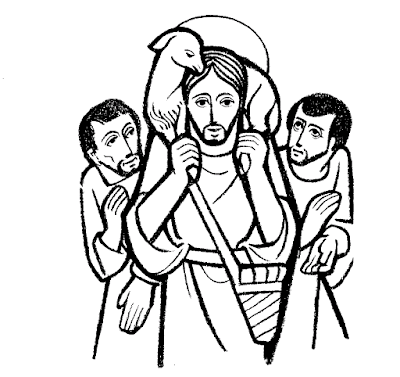XI SUNDAY IN ORDINARY TIME - 2 Samuel 12:7-10,13
This Sunday, we are presented with the figure of David, being challenged by the prophet Nathan.
David came into the limelight while still a boy. Being a shepherd who knew well how to survive and how to protect his flock from the wild beasts, he was courageous enough to face Goliath and kill him with a stone from his sling. Suddenly he became famous, being sung of in popular songs. This fame brought the jealousy and the enmity of Saul. To survive Saul’s hatred, David had to be always on the look out and on the run, because he had become an outcast with a price on his head, with the king’s army on his pursuit. Then, other outcasts joined him, and the number of his followers grew; in the end, he formed his own army. After the death of Saul, he became king of the South, and later on unified the country, when the North chose him to be their king as well. One of his great achievements is that he conquered Jerusalem, making it the capital of his kingdom. He was famous for his prowess in battle and for his conquests, extending the borders of the kingdom and transforming it into an influential state.
David was a deeply religious man, who tried to guide himself by the commands of the Lord and who pay great attention to the great celebrations. However, power and wealth - and he had enough of it to keep a big army - are always a source of all kinds of temptations. In front of a wealthy and powerful leader, many people are ready to accept his requests without questioning them and may even suggest whatever they think will please him.
David had sent his army into battle, while he remained idle behind. Like many kings of the past, he had several wives and concubines as well. In spite of that, it was enough to see a beautiful woman for his heart to be filled with lust, and he was not deterred by the fact that she was married. He was a king and the desires of the king are an order for those who are his subjects. So he ordered Bathsheba to come to the palace and had sex with her. When Bathsheba informed him that she was pregnant, David had to find a quick solution, and to cover up one evil, he was ready to do a bigger one. And feeling protected by the power of his throne, he did not hesitate to add murder to adultery. When Uriah died, David brought Bathsheba into the palace and made her his wife.
David’s lust led him to abuse of power - a thing so common nowadays as in the past: he committed adultery, sexual abuse and probably rape. And then, to cover up his misdeeds, he committed murder, involving others in his crime.
However, there is nothing hidden that will not come into the open. Surely, when he ordered Bathsheba to come into his palace, some of his servants must have noticed the fact, and the fact that Uriah was put in front of the battle in order to be killed could not pass unnoticed as well. Most probably many people knew what happened in secrecy, but nobody had the guts to reproach the king and to tell him to his face the crime that he had committed. But it would not be so with the prophet Nathan, in spite of being an adviser and a friend of David; for him obedience to God’s commands was more important than his position before the king. And he had the courage to go to the palace and force David to face his crime: “Why have you shown contempt for the Lord, doing what displeases him? You have struck down Uriah the Hittite with the sword, taken his wife for your own, and killed him with the sword of the Ammonites.” (2 Sam 12:9).
The greatness of David is that he recognised his sinfulness, repented and asked forgiveness for his sin. Very few rulers are ready to do that, thinking that to recognise their failures, to ask for forgiveness and to repent is a sign of weakness. Many rulers are untouchable; they cannot be questioned, and they cannot be confronted and challenged. And very few people have the courage of Nathan. What is surprising in the history of the people of Israel was the emergence of the prophets and the fact that most of them, in obedience to God, were ready to proclaim his word and to challenge whatever behaviour or policies went against God’s commandments.
We need people full of zeal, courageous enough to stand up and speak out against the evil behaviour and evil policies which can be found in many of our rulers and governments. Those who do that are the ones who are at the service of the people.
Let us pray to the Lord that he may grant us true prophets and also rulers and leaders of the people who may imitate David in recognising their faults.
The story of David is a story of sin, repentance and forgiveness like the story of that woman of the Gospel (Lk 7:36-50) who was able to show great love because she has been forgiven. Our God is a demanding and challenging God, but his love and mercy are even greater, and we can always approach him with confidence in his kindness and love.






